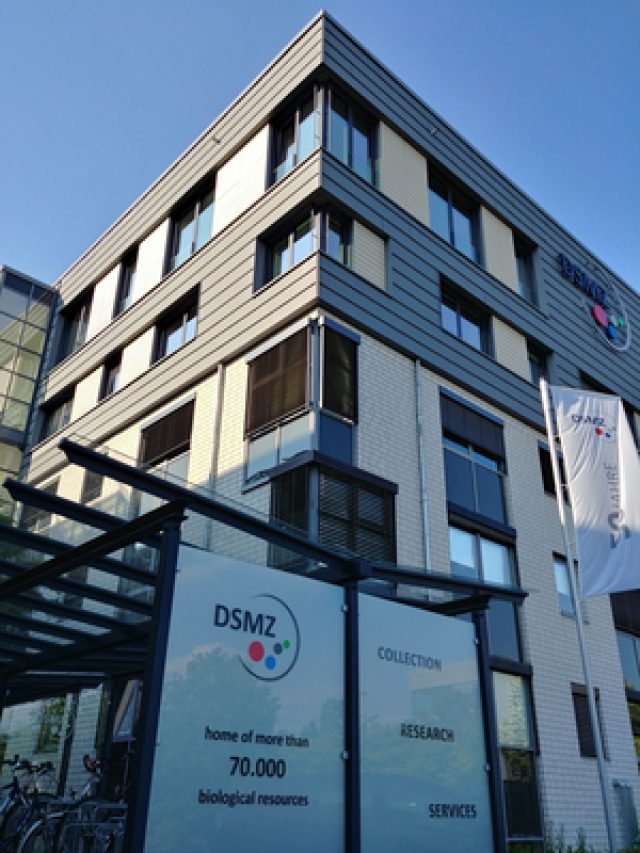- Institution: Leibniz-Institut DSMZ-Deutsche Sammlung von Mikroorganismen und Zellkulturen GmbH/Leibniz Institute DSMZ-German
- Acronym: DSMZ
- Location:
Inhoffenstr. 7B
38124 Braunschweig
GERMANY
- Website: http://www.dsmz.de
- Correspondent:
Tel.: +49 (0) 531-2616-0
Fax: + 49 (0) 531-2616-418
e-mail: dsmz@eccosite.org - Social Media:
Facebook: @Leibniz.DSMZ
Twitter: @Leibniz_DSMZ_en
Instagram: dsmz_leibniz
LinkedIn: https://www.linkedin.com/company/12610502
Research Gate: https://www.researchgate.net/project/Leibniz-Institute-DSMZ-German-Collection-of-Microorganisms-and-Cell-Cultures-GmbH
Members holdings
The Leibniz Institute DSMZ is the most diverse biological resource center in the world and one of the largest collections of microorganisms and cell cultures worldwide. With the availability of 80 percent of all formally described bacterial species, the DSMZ hosts the majority of bacterial diversity as well as a globally unique stock of human and animal cell lines, fungal strains, plant viruses, bacteriophages and genomic bacterial DNA for research purposes. The DSMZ is both an active collection and a research institute.
The German Collection of Microorganisms and Cell Cultures has been a member of the Leibniz Association since 1996 and plays a key role in the national and international biological research community. As a Leibniz Institute, the non-profit DSMZ is supported by the State of Lower Saxony and funded by the Federal Government and the German states.
The DSMZ was the first "Registered Collection" under the EU Regulation 511/2014 for the Nagoya Protocol and is the only recognized international depositary in Germany under the Budapest Treaty. The processes carried out at the Leibniz Institute DSMZ are certified according to various independent procedures including ISO / TC 276 Biotechnology, DIN EN ISO 9001 and OECD "Best Practice Guidelines for Biological Resource Centres". In addition, the department of plant virus is accredited according ISO 17034.
The DSMZ hosts more than 79,000 bioresources, most of them available from the open collection. The DSMZ collections currently comprise about 35,400 bacteria, 690 Archaea, 8,000 fungal strains and yeasts, 1,000 bacteriophages, 5,000 plant viruses and antisema, and 870 human and animal cell lines, and 19,000 different types of bacterial genomic DNA. Only biological material of risk group 1 and 2 is accepted. The DSMZ continuously expands its Digital Collection: free accessible and well-structured digital information about living organisms (genomic, biochemical, physiological and biogeographic data for bioresources).
Services offered
In addition to the deposit and distribution of bioresources the DSMZ offers a comprehensive portfolio of services like identification, characterization, specific analyses and online tools. Service offers are constantly under development in order to implement novel state-of-the-art services including microbial diversity analyses of complex natural samples, comprehensive genome sequence analyses and functional genomics.
The DSMZ is recognized as an International Deposit Authority (IDA) for the deposit of biological material under the Budapest Treaty.
Several bioinformatic tools are free accessible and provide support for prokaryotic, virus and eukaryotic research.

